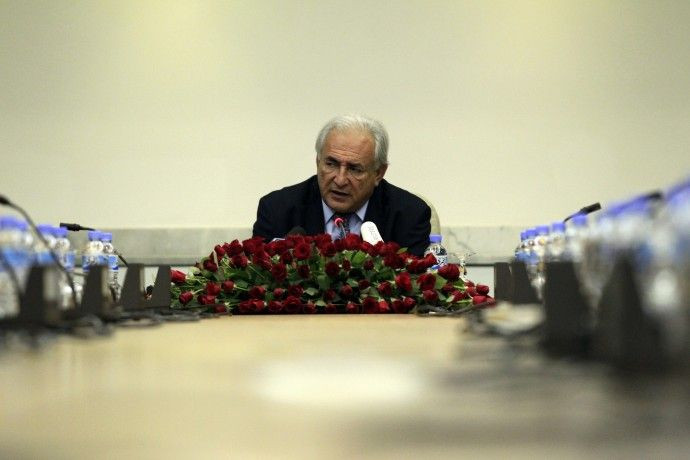IMF chief lists Europe's economic problems

Europe has experienced a rare period of peace and prosperity in the decades following WWII. However, as early as the 1980s, fault lines began to appear and the global financial crisis tore them wide open.
Now, Europe perhaps faces its greatest economic challenges since World War II, said IMF chief Dominque Strauss-Kahn at the European Banking Congress in Germany.
Strauss-Kahn said low growth, poor employment prospects, and growing economic divergences are threatening Europe's prosperity, social cohesion, and even their citizen's belief in democracy.
One notorious problem is chronically high unemployment, which existed even before the global financial crisis.
Labor market institutions tend to reward privileged insiders at the expense of excluded outsiders, said Strauss-Kahn.
Also, there is a lack of locational labor market flexibility among different countries because of variations in benefits and protection and the lack of portability of pensions tied to individual countries.
As a result, a large portion of the population is distanced from the labor market and marginalized from society, said Strauss-Kahn.
In southern Europe, labor productivity is also lagging because of problems infrastructure, innovation, worker skills, and the high barriers to entry in some sectors.
In all of Europe, Strauss-Kahn thinks more should be devoted to research and education. He said the euro area lags behind the United States in both publically- and privately-funded research and development.
Prior to the global financial crisis, Europe's financial sector, like those in the U.S., have focused more on sophisticated innovation rather than on being a true driver of economic growth. One problem is that small- and medium-sized businesses have difficulty obtaining financing and are the first to be cut off when pressures arise.
These businesses, incidentally, are major drivers of innovation and providers of employment outside of large and prejudiced labor market institutions.
The supranational governance of Europe is another problem. Often, the drawbacks of integration have become more prominent than the benefits of it.
For example, sovereign debt crises in Greece or Ireland, each accounting for less than 3 percent of the total European Union economy, threaten to bring down the whole system. Meanwhile, a coordinated bailout response to these crises has been difficult and clumsy, to say the least.
Europe also suffers from imbalances within as some countries run persistent trade surpluses and others run persistent trade deficits.
Strauss-Kahn said Germany, in particular, needs to focus more on domestic consumption instead of exports.
Lastly, Europe is fighting a losing demographic battle as it stares in the face of a dwindling labor force.
Strauss-Kahn recommends more integration and centralization at the European Union level to address many of these problems.
Doing so won't be easy, but neither was the creation of the single market and common euro currency.
It’s time to finish the job, to finally realize the common destiny of Europe, he concluded.
Email Hao Li at hao.li@ibtimes.com
© Copyright IBTimes 2024. All rights reserved.





















